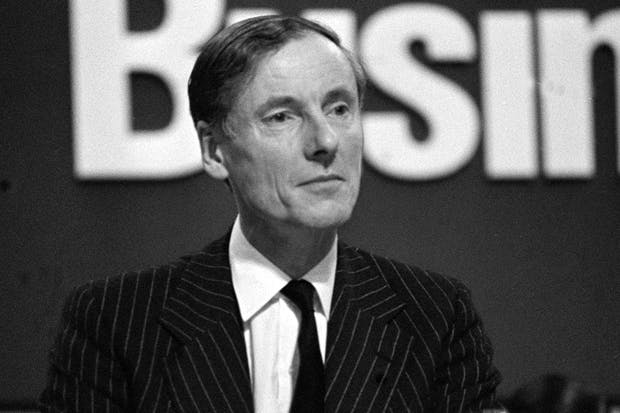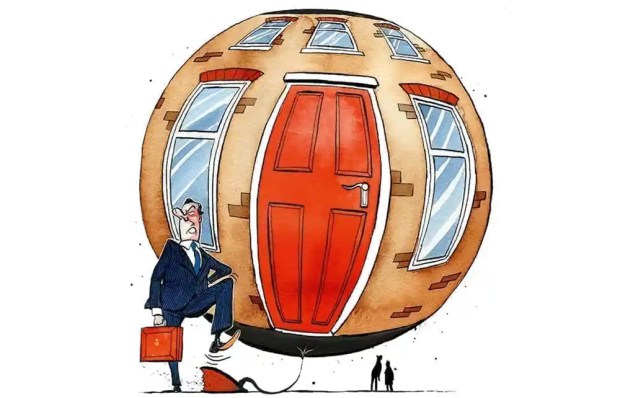Last year was a bumper year for mergers and acquisitions. Recovering prospects and relatively low price-earnings ratios made the takeover arena alluring: the global volume of deals looks certain to have passed the $4.3 trillion record of 2007. Among the new giants are Shell-BG, Heinz-Kraft, Pfizer-Allergan and monster brewer AB InBev-SAB Miller; bonuses reaped by London M&A bankers will fund basement diggings bigger than Crossrail.
So you might expect me to name my deal of the year: but no. Instead let me quote from Deloitte’s M&A Market Trends Report 2015, based on a survey (in February) of 2,500 US executives: ‘Despite increased deal-making activity — and expectations for another blockbuster year — almost 90 per cent of respondents said that completed transactions have fallen short of generating expected return on investment, the same as last year. On the private equity side, 96 per cent of respondents said their deals fell short of targeted returns.’
That says it all. Four decades of observation have taught me that the best businesses are built by entrepreneurial flair, stamina, calculated risk, encouragement of talent, continual improvement of product and the ability to cope with change. They are rarely made by stock-market-driven mega-mergers, which mostly lead to trouble. So if I have to award a signed copy of my Any Other Business anthology for the most impressive strategic gambit of the year, I’ll mail it to Facebook founder Mark Zuckerberg for his decision to devote the bulk of his $45 billion pile to chosen causes through a corporate vehicle that isn’t quite a charity.
It’s fashionable to scorn this kind of swaggering ‘philanthrocapitalism’; Zuckerberg, like Bill Gates before him, is not much loved even by devotees of his product. But both are outstanding business-builders, and if they choose to spread their good fortune by giving chunks of it away we should salute them — rather than applauding ‘deal-makers’ whose destiny, more often than not, is the destruction of shareholder value.
City farewells
Among City figures who died in 2015, the most distinguished was Sir Adrian Cadbury, Bank of England director and author of a pioneering code of corporate governance. Once called ‘the City’s own social worker’ he wasn’t really a City man at all, being a Birmingham manufacturer and practising Quaker. I suspect he was appalled by much that went on the Square Mile, though one of its merits, that of openness to all comers, was illuminated by other departures: Christopher Sporborg of Hambros was of Bavarian stock; half-German Dolf Mootham of Hill Samuel was born in Burma; Lord Mayor and Lehman Brothers broker Sir Paul Newall was born Paul Neuwath, son of a Polish immigrant in the garment trade.
And another figure warmly recalled by readers after a mention here was that of ‘Big Val’: one email waxed lyrical about ‘her magnificent bosom restrained only by a see-through fishnet top’. For the record, she was Valerie Collins; I gather she retired to Spain, but that her Essex funeral in 2013 was well attended by former patrons of her louche but long-gone City Circle restaurant.
The human element
Last word in my survey of experiences of opening bank accounts for start-ups goes to a reader who set up an overseas estate agency, run through a UK company. Turned away by NatWest after weeks of unhelpfulness, she tried HSBC — and was turned down again, on grounds of being non-resident, until at the end of a maddening day she at last found a manager willing to take up her cause: ‘He stayed late, spent a long time on the phone and at 6.30 p.m., with the cleaners washing the floor, my account was open. I could have kissed him. Banks generally are impersonal, uncaring and absolute sods to small business owners. But it’s the human element that makes the difference.’
Rise to the challenge
An iconic moment of 2015 was the Fifa press conference in Zurich in July at which president Sepp Blatter was showered with fake dollars by British comedian Simon Brodkin. Blatter has yet to have his day in court, but Fifa itself is utterly tainted by sleaze allegations, as are the world of international athletics for its doping scandals, Volkswagen for its emissions-test cheating and the world’s leading banks for mis-selling, rule-bending and facilitation of tax-dodging. We can only wonder which institution or industry will next be found mired in amorality and corruption.
What’s worse for those of us who try to defend free-market capitalism, standards seem to have declined most in areas which involve the highest levels of trust or role-model admiration. Football has been made dirty by big money from broadcasting. Not one customer in a hundred would now say ‘I have implicit faith in my bank to do the right thing’. Drug manufacturers, with our health in their hands, seem to be repeat offenders: google Pfizer, Allergan and ‘bribery charges’ to see what those merger partners really have in common. In short, the entire money world urgently needs to start cleaning itself up.
But happily not all sporting role models are venal. The year’s most uplifting moment came while I was doing my quarterly VAT accounts in September. I switched on the television for distraction and caught the last 20 minutes of the Corinthian 34-32 victory of Japan over South Africa in the Rugby World Cup. An admirer (in a post-war context, obviously) of the Japanese spirit of ganbare — which translates as ‘rise to the challenge and do your utmost’ — I found myself howling at the screen as winger Karne Hesketh went over for the winning try. In the quest for better business, better banking and better corporate behaviour in 2016, here’s this column’s battle cry: ganbarimasho-ka!
Got something to add? Join the discussion and comment below.
Get 10 issues for just $10
Subscribe to The Spectator Australia today for the next 10 magazine issues, plus full online access, for just $10.















Comments
Don't miss out
Join the conversation with other Spectator Australia readers. Subscribe to leave a comment.
SUBSCRIBEAlready a subscriber? Log in